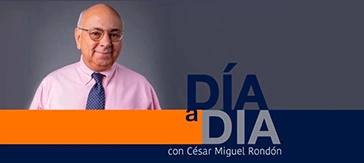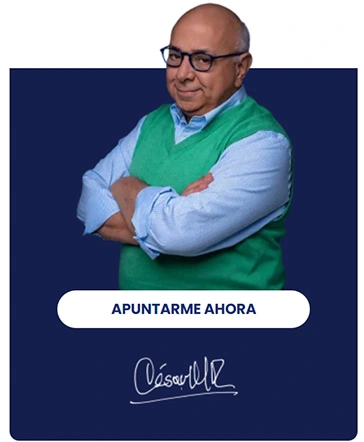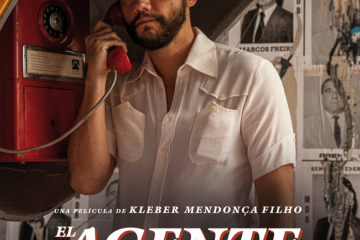Publicado en: The Atlantic
Por: Anne Applebaum
Citizens of a once-prosperous nation live amid the havoc created by socialism, illiberal nationalism, and political polarization.
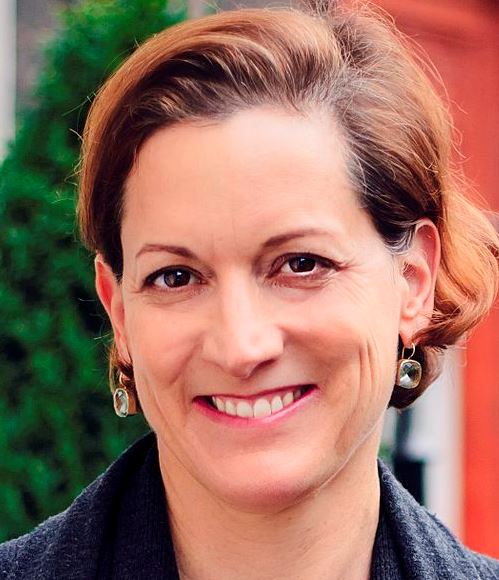
Last month, Juan Guaidó appeared in Washington in the role of political totem. Venezuela’s main opposition leader—the man who is recognized by that country’s National Assembly, millions of his fellow citizens, and several dozen foreign countries as the rightful president of Venezuela—was one of the special guests at the State of the Union address. President Donald Trump welcomed Guaidó as living evidence that his own administration was “standing up for freedom in our hemisphere” and had “reversed the failed policies of the previous administration”; he called Venezuela’s current leader, Nicolás Maduro, an illegitimate ruler whose “grip on tyranny will be smashed and broken.” He gave no details of how that would happen. Trump, who has never been to Venezuela or shown any prior interest in it—or, for that matter, shown any interest in freedom anywhere else —presumably knows that the country matters to some voters in South Florida. To their credit, members of Congress gave a bipartisan standing ovation to Guaidó nevertheless.
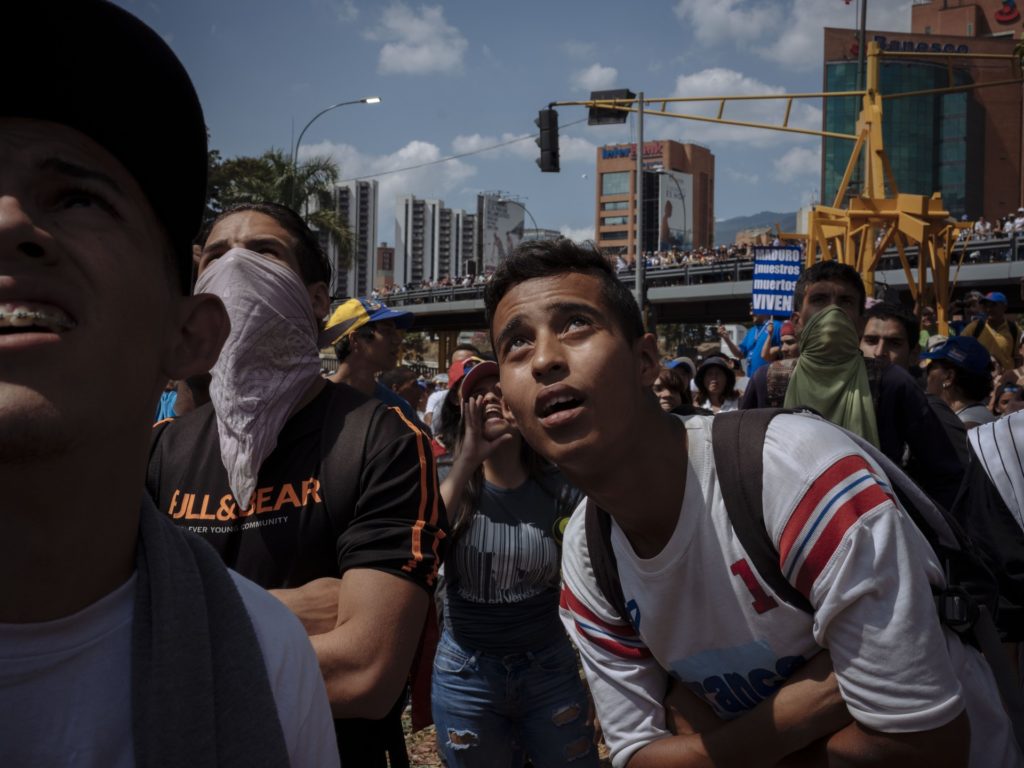
Cortesía: Emin Ozmen / Magnum Photo
Trump is not the only world leader to cite Venezuela for self-serving ends. Regardless of what actually happens there, Venezuela—especially when it was run by Maduro’s predecessor, the late Hugo Chávez—has long been a symbolic cause for the Marxist left as well. More than a decade ago, Hans Modrow, one of the last East German Communist Party leaders and now an elder statesman of the far-left Die Linke party, told me that Chávez’s “Bolivarian socialism” represented his greatest hope: that Marxist ideas—which had driven East Germany into bankruptcy—might succeed, finally, in Latin America. Jeremy Corbyn, the far-left leader of the British Labour Party, was photographed with Chávez and has described his regime in Venezuela as an “inspiration to all of us fighting back against austerity and neoliberal economics.” Chávez’s rhetoric also helped inspire the Spanish Marxist Pablo Iglesias to create Podemos, Spain’s far-left party. Iglesias has long been suspected of taking Venezuelan money, though he denies it. Even now, the idea of Venezuela inspires defensiveness and anger wherever dedicated Marxists still gather, whether they are Code Pink activists vowing to “protect” the Venezuelan embassy in Washington from the Venezuelan opposition or French Marxists who refuse to call Maduro a dictator.
And yet—Venezuela is not an idea. It is a real place, full of real people who are undergoing an unprecedented and in some ways very eerie crisis. If it symbolizes anything at all, it is the distorting power of symbols. In reality, the country offers no comfort for youthful Marxists or self-styled anti-imperialists—or for fans of Donald Trump. I spent a few days there earlier this month, on an academic invitation. During the course of ordinary conversations with me, three people burst into tears while talking about their life and their country.
One of the three was Susana Raffalli, a widely recognized Venezuelan expert in nutrition and food security. During her long career, Raffalli has worked all over the world, never imagining that her skills would be necessary in Venezuela, which has large oil reserves and was long a middle-income country. Raffalli and I met in a deceptively chic restaurant in Altamira, one of the wealthiest neighborhoods in Caracas. Just around the corner stood one of the shiny new hard currency stores, where people with dollars can buy things like Cheerios or large bottles of Heinz ketchup. Imported goods like these had disappeared in recent years as hyperinflation rendered the Venezuelan bolívar almost worthless, and as international sanctions and Venezuela’s own import controls disrupted trade. Now they are again available—but only to those who have access to foreign currency.

Cortesía: Emin Ozmen / Magnum Photos
Members of the Chavista-Madurista elite do indeed have such access, and the new dollarization of the Venezuelan economy has suddenly allowed them to flaunt their money. One academic I met described how shocked he was to see a woman reach into her handbag and pull out $3,000 in cash to buy a designer coat. “What kind of person,” he mused, “could have that kind of money?” By contrast, his elderly neighbors—formerly middle-class people, living on fixed pensions with no access to dollars—look thin and wasted. He himself had left his university to work for a foreign charity, because an academic salary paid in bolívares is no longer sufficient to buy food.
The glitzy evidence of dollarization also masks the deep crisis of the rural poor. Upon Chávez’s death in 2013, Corbyn thanked him on Twitter for “showing that the poor matter and wealth can be shared.” But neither Chávez nor Maduro has ever shown anything of the sort. Whatever progress the country made against poverty in the past was due to high oil prices, which have since slumped. Now Maduro presides over a disaster that is devastating the poor above all. Raffalli told me that the food-production system began to break down nearly a decade ago, thanks to the expropriation of land and the destruction of small agricultural companies, though a few big ones survive. Widespread malnutrition began a few years later. The Catholic charity Caritas believes that 78 percent of Venezuelans eat less than they used to, and 41 percent go whole days without eating. The side effects of hunger—higher rates of both chronic and infectious diseases—are spreading too. But if you haven’t heard about hunger in Venezuela, that’s not an accident: The government is going to great lengths to hide it.
The tactics of deception include the use of outdated nutrition measures, which help conceal the severity of the problem. Government departments have also resorted to euphemistic jargon. “Malnutrition” has become “nutrition vulnerability,” Raffalli said, and a system of health centers for starving children is now the Service for Nutritional Education. The country’s National Assembly, which is controlled by the opposition, passed special measures to address the health crisis; the Supreme Court, which is controlled by Maduro, rejected them. Most ominously, doctors in Venezuelan hospitals have faced pressure not to list malnutrition as either a cause of illness or a cause of death. Though the official media do not mention these policies, people know about them anyway. Raffalli herself witnessed an extraordinary scene in one hospital: The parents of a child who had died from starvation tried to give her the corpse, because they were afraid that state officials would take it away and hide it. She was also in a rural region where children leave school at midday to hunt for birds or iguanas to cook and eat for lunch.
To anyone who knows the long history of the relationship between Marxist regimes and famine, this development seems uncannily familiar. More than 80 years ago, in the winter of 1932–33, Stalin confiscated the food of Ukrainian peasants and did nothing while nearly 4 million died. Then he covered up their deaths, even altering Soviet population statistics and murdering census officials to disguise what had happened. To anyone who knows the long history of Communist countries’ use of food as a weapon, the Venezuelan regime’s manipulation of the food supply comes as no surprise, either. Most Venezuelans—80 percent according to a recent survey—now rely on boxes of food, containing staples such as rice, grain, or oil, from the government. Agencies known as Local Committees for Supply and Production hand the packages out to people who register for a Patria (“fatherland”) card or smartphone app, which are also used to monitor participation in elections. Raffalli has called this policy “not a food program, but a program of penetration and social domination.” The hungrier people get, the more control the government exerts, and the easier it is to prevent them from protesting or objecting in any other way. Even people who are not starving now spend most of their time just getting by—standing in lines, trying to fix broken generators, working second or third jobs to earn a little bit more—all activities that keep them from politics.
But when Raffalli’s voice broke, she was talking about something else: the indifference that was growing, both at home and abroad. The United Nations, perhaps thanks to some officials who admired Chávez—or who do not admire Trump—has not launched a major humanitarian-aid program in Venezuela. “The trauma here is that it is forgotten by outsiders, and also forgotten by us,” Raffalli said. “We are getting used to it … you have to keep saying, ‘No, it’s not normal!” This, she said, is what Venezuela has become: “a country with some of the world’s biggest rivers, and yet we have water shortages. A country with vast reserves of oil, and yet people are cooking food over wood fires.” In this type of protracted crisis, “people start to lose hope. Hunger co-exists with fatigue and lack of hope. And we are forgetting what we used to be.”
And yet, despite the clear historical echoes, the cause of the crisis in Venezuela is not merely the familiar, fanatical application of Marxist theory. If some elements of recent Venezuelan history sound amazingly like a replay of Soviet history, other elements strongly resemble the more recent histories of Russia, Turkey, and other illiberal nationalist regimes whose leaders slowly chipped away at civil rights, rule of law, democratic norms, and independent courts, eventually turning their democracies into kleptocracies. This process also took place in Venezuela. Like the destruction of the economy, the destruction of the political culture took some time, because there were several decades’ worth of democratic institutions to destroy. Writing in The New Yorker in 1965, not long after a round of successful elections, a visitor to the country observed, rather elegantly, that “the high-minded, steadfast enthusiasm for the republican ideal is one of the determining factors in Venezuelan history … the Venezuelan seeks the City of Justice as his forerunners sought the City of Gold, with the same dedication, the same indestructible hope, and the same splendid determination.”
But democracy became weaker in the 1990s, thanks to widespread corruption linked to the oil industry. Chávez broke the rule of law completely. His first attempt to take power was via a coup d’état, in 1992. He won a legitimate election in 1998, but once in power he slowly changed the rules, eventually making it almost impossible for anyone to beat him. In 2004, he packed the Supreme Court; in 2009, he altered the electoral system. Just like other illiberal governments, the Venezuelan regime also sought to undermine abstract ideas of justice—which might have protected ordinary people from the authoritarian state—by dismissing them as a Western plot. Rafael Uzcátegui, an activist who runs PROVEA (the Venezuelan Education-Action Program on Human Rights), told me that the country’s rulers had tried to redefine the problem: “They said everything that we understood as human rights was a ‘liberal hegemonic imposition.’” They also created parallel institutions—such as the Bolivarian Alliance for the Peoples of Our America, Chávez’s version of the Organization of American States—to limit the influence of established multinational bodies and global human-rights groups inside Venezuela.
Having gained full control of his nation’s legal and judicial institutions, Chávez did not use it to benefit poor Venezuelans, contrary to the mythology spread by far-left admirers. Instead, Chávez began to transfer the wealth of the country to his cronies. This process was extraordinarily well documented, in real time, by many people. A Foreign Affairs article about Chávez in 2006 spoke of “blatant violations of the rule of law and the democratic process.” A 2008 article in the same publication noted that “neither official statistics nor independent estimates show any evidence that Chávez has reoriented state priorities to benefit the poor.” The slide into spectacular corruption grew worse under Maduro. In Caracas, I met at least a dozen academics and journalists who are still charting the regime’s dishonest social-media campaigns, infringements on what remains of the constitutional order, and stunning corruption, as well as its humanitarian disaster. Their ability to observe and describe all of these things has not necessarily helped them to stop them.
Some elements of Chávez’s method will seem strangely familiar to anyone who has studied other kleptocracies. The Venezuelan writer Moisés Naím has described his country’s political system as a “loose confederation of foreign and domestic criminal enterprises with the president in the role of mafia boss,” which makes it sound very much like Vladimir Putin’s Russia. In Caracas, I sat in a room full of people who were debating just exactly how much money the regime had stolen—$200 billion? $600 billion?—a parlor game that gets played in Moscow too. Scattered around the Venezuelan capital are several brand-new, completely empty apartment buildings that are reportedly a side effect of money laundering: Their owners are storing stolen money in glass and concrete, hoping that real-estate prices will rise someday. A couple of years ago, a court in Miami charged a network of Venezuelan officials with laundering $1.2 billion into property and assets in Florida and elsewhere. Investigations into that case and others still involve law-enforcement agencies all over the world.
How did Chávez get away with this level of theft? How can Maduro sustain it? Among other things, the two strongmen have made it almost impossible for the independent press to function, undermined the credibility of experts, and distracted supporters, both domestic and foreign, with a combination of fairy tales—how wonderful were the lives of the poor!—and conspiracy theories. For Americans, some elements of this story should hit uncomfortably close to home. At the height of his power, Chávez appeared every Sunday on his own surreal, unscripted reality-television program, called Aló Presidente. He would interview supporters, hire and fire ministers, insult people, even declare war while on air, using television much as President Trump uses Twitter, to shock and entertain, sometimes continuing for many hours. Chávez made up names for his enemies—“El Diablo” was one of several for President George W. Bush—and he was vulgar and rude. These traits convinced people that he was “authentic.” Just as Trump used to shout “You’re fired” as a kind of punch line on The Apprentice, Chávez would shout “Exprópiese!” at buildings and property, supposedly owned by rich people, that he intended to expropriate.
Over time, Chávez successfully polarized society into groups of fanatical supporters and equally dedicated enemies—warring tribes who felt they had little in common. Some of the differences were based on class or race, but not all. One Venezuelan I met—he owned a bookstore before people could no longer afford to buy books—told me that he fell out with a university friend who’d become a fanatical Chavista. They never made up.
Even now, polarization is built into the streetscape of Caracas. In the middle-class Chacao district, which is controlled by the opposition, the names of activists murdered by the regime are painted onto a fence that stands near a square where many anti-Maduro demonstrations have been held. In the working-class neighborhoods, one sees pro-regime murals and billboards, though many of these defy the clichés. Some of them, heavy on Venezuelan flags and “No Trump” slogans, could easily be described as nationalist rather than socialist. Others—the paintings of Chávez’s eyes, for example—belong more strictly to what can only be described as a cult of personality.
None of those signs and symbols necessarily means that the regime is popular. Most of the political scientists whom I met reckoned that Maduro has the support of no more than a quarter of the population—some of whom support him only for the food boxes or out of fear. Those who speak out, especially from the slums, are periodically subjected to violence too. In one poor neighborhood, I met a woman whose cousin had recorded a video of himself, draped in a Venezuelan flag, going to an anti-government demonstration, and posted it on Facebook. A neighbor recognized him and told the authorities—another act with Stalinist echoes. A couple of days later, police thugs from the Special Actions Force—a unit known as FAES, which Maduro created in 2017 supposedly to “fight terrorism” —abducted and murdered him.
Extrajudicial murders like this one are now common. An initiative called Mi Convive—whose mission is to monitor and reduce violence—registered 1,271 extrajudicial murders in Caracas alone from May 2017 to December 2019, out of more than 3,300 violent deaths in the city. Late last year, the UN high commissioner for human rights concluded that FAES and other police had killed 6,800 Venezuelans from January 2018 to May 2019, a period of sharp political conflict. The commissioner’s report included details of torture, such as electric-shock treatment and waterboarding. Precisely because those who criticize the government can be subjected to harassment or violence, especially if they come from the slums, I am withholding the names of some of the Venezuelans whom I met or interviewed.
But cynicism is just as powerful a demotivator as fear. Over and over again, people told me that while they don’t dislike Guaidó, they do not believe he can win. So what if the Trump administration recognizes him as the rightful president? The Venezuelan army does not. Democracy is broken, elections are unfair, the police can enter anyone’s house at any time, so how can the regime be brought down? One of Guaidó’s former teachers, a university professor, told me he had let his former student know that he would not come to any more demonstrations until he knew exactly what he was demonstrating for. What is the realistic path to change?
Polarization adds to this cynicism by creating suspicion and mistrust on both sides; people hear politicians shouting diametrically opposing slogans or presenting contradictory facts, and their instinct is to cover their ears. Then they retreat inward—or they leave, in vast numbers. The 4.5 million people who are thought to have left Venezuela in recent years have done so either by walking across the border into neighboring countries or by seeking to study or work abroad. Historically, Venezuela was a magnet for immigrants, not a source of refugees. The current exodus has left enormous gaps in many institutions, broken up families, and destroyed circles of friends.
The second person I met who started to cry was a translator. At one event, I responded in English to a question about the wave of Venezuelan refugees now spreading across South America, North America, and Europe. As the translator put my answer into Spanish, she broke down. “I suddenly thought of my nieces and nephews,” she told me afterward. “All of those hopeful young people, all gone.”
The third time someone cried was in rather different circumstances. I was in La Vega, one of the slums that cling to the hills around Caracas, a little bit like the favelas around Rio de Janeiro. The paved roads in La Vega attest to the money that was once available to spend on infrastructure; the jerry-rigged electricity cables and water pipelines attest to that infrastructure’s decline. We were sitting in a community kitchen created by a group called Alimenta la Solidaridad (a name that translates loosely to “food solidarity”), which serves regular meals to children in poor neighborhoods. This is one of a pair of initiatives originally conceived by Roberto Patiño, a young opposition politician turned humanitarian activist. The first one is Mi Convive, the group that monitors and mitigates violence; its name, also translated loosely, means “live together.” Patiño was a student leader who campaigned on behalf of a previous opposition leader, Henrique Capriles, who ran for president and lost by a tiny and probably fraudulent margin in 2013. As he traveled around the country, Patiño told me, he was shocked by the lack of faith that people had in the whole process. They didn’t hate Capriles; they just thought that “everything related to politics is a lie.”
Patiño’s organizations are not political, and they are not intended to affect election campaigns directly. Instead, they seek to undermine the polarization, and dampen the cynicism, that has frozen Venezuelan society. Propaganda divides people. Fear isolates them. By contrast, Alimenta and Mi Convive create projects that bring people together, regardless of their socioeconomic status or political views, building networks of friendship and support. The projects are staffed, in part, by educated, middle-class people in their 20s and 30s who have deliberately decided not to emigrate, though any of them could. Alberto Kabbabe, the co-founder and executive director of Alimenta, has a degree in chemical engineering; he says most of his university friends have left for the U.S. or Colombia. Back when he was in the student movement with Patiño, Kabbabe didn’t imagine himself running community kitchens, but then, none of the group did. “I thought I would be doing politics, but something more … sophisticated,” one told me. But in a society where sophisticated politics feel pointless and impossible, working to create links between wealthy and poor neighborhoods feels positive and creative. “The government made people believe that we are all different and enemies. In fact, we are all different, but we can work together,” Kabbabe told me.
A trio of them took me to see a couple of the kitchens in La Vega. We began with a visit to a Jesuit school. Alimenta has worked closely alongside the order, which has a particular interest in refugees and the very poor. The Jesuit fathers in Caracas—I met several—reminded me of the kinds of priests who used to work in Polish working-class neighborhoods in the 1980s, when the Catholic Church was a unifying national institution in Poland and not part, as it is now, of a divisive war over modern culture.
From the school we went to one of the community kitchens—in reality, a dining space set up on a dirt floor beneath a corrugated-tin roof. The women who worked there were all volunteers, some of whom had lost their access to the free government food boxes because they work for Alimenta. They said they didn’t care—the food served at the kitchens is healthier anyway—and there are other benefits. “We can do something to make a difference,” one of the volunteers told me, and that creates a kind of psychological satisfaction, even aside from the food. Some of the women have become advocates for their communities, speaking out about school closures, water shortages, and the other hardships that Venezuela’s decline has imposed on them.
Conditions were a little better in another section of La Vega, farther down the hillside. There, the community kitchen is inside a real building, connected to a convent. Posted on the walls are lists of daily menus; the space smells slightly of disinfectant and the floors positively shine. The volunteer who runs the kitchen—gray-haired, wearing blue jeans and an Alimenta la Solidaridad T-shirt—showed us around. She started to tell her life story, a tale of bad luck and crises, a son who was shot during local violence, another who died in an accident. But now she has had some success: Her daughters are studying, and she is feeding children—a role that allows her to keep an eye on local families in trouble. This is when she started to cry. One of the women from Alimenta—several decades younger, from a different neighborhood and a luckier family background—stood up and put her hand on her shoulder. The older woman stopped for a moment, and then resumed her story.
I am tempted to end here with a warning, because Venezuela does represent the conclusion to a lot of processes we see in the world today. Venezuela is the endgame of ideological Marxism; the culmination of the assault on democracy, courts, and the press now unfolding in so many countries; and the outer limit of the politics of polarization. But I don’t want, as so many have done, to treat Venezuela as just a symbol. It’s a real place, and the hardships faced by the people who live there have not ended, culminated, or been limited at all. Whatever the United States and other members of the international community do next in Venezuela, the goal should be to help real Venezuelans, not to further an ideological argument, especially as the humanitarian and political crises deepen and spread.





